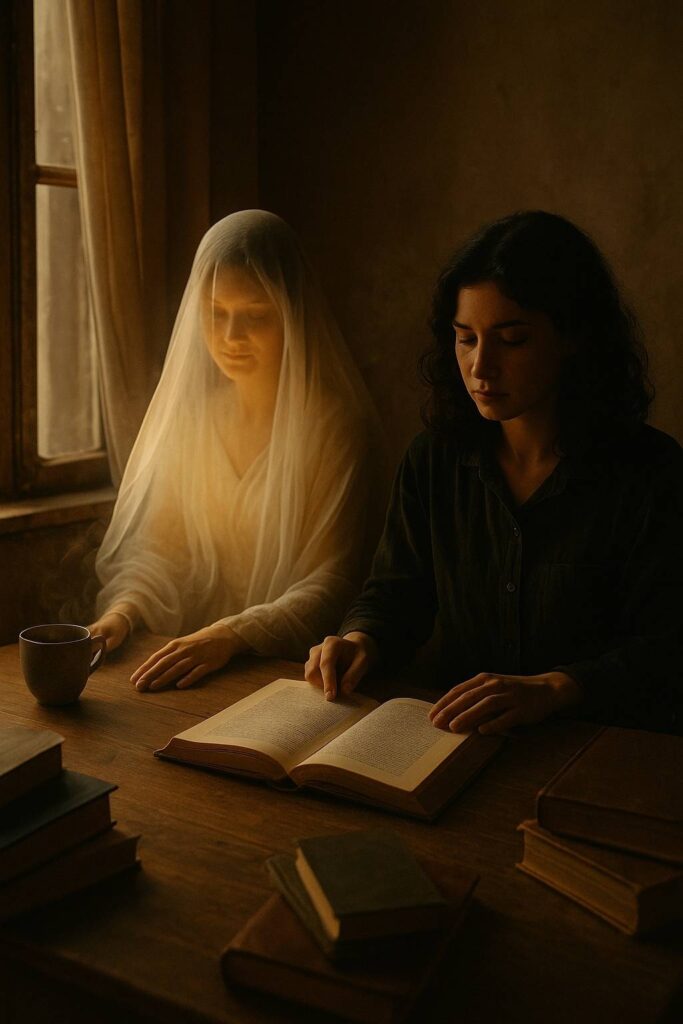
Book Review of The Sufi Storyteller by Faiqa Mansab
The Sufi Storyteller
Some books begin like dusk — quiet, purple-hued, full of unspoken promises. The Sufi Storyteller by Faiqa Mansab opened like that for me — soft as prayer, rich as memory. It whispered of stories passed down through centuries, women cloaked in silence and myth, and a murder that pulsed like a hidden wound beneath carefully folded lives.
It had all the ingredients of a book I was certain I would love — Sufi mysticism, a complex mother-daughter relationship, the undercurrent of diaspora, and a layered mystery. In those opening chapters, I was enchanted. Entranced. Caught in the delicate thread of sentences that felt more like silk than words. There was something deeply familiar in the rhythm of it — as though I was listening to a qawwali that echoed in the bones more than the ears.
We meet Layla Rashid, a woman suspended between past and present, mother and memory, homeland and foreign soil. Her life is a quiet one — scholarly, precise — until a woman is found dead in the college library, and her long-estranged mother, Mira Heshmat, a celebrated Sufi storyteller, is somehow tangled in it all. The story then begins its slow spiral — into old wounds, shared silences, buried truths, and the murky space between fact and fable.
Mansab’s prose in the beginning is nothing short of hypnotic. It is heavy with atmosphere — like the scent of roses pressed between ancient pages. Her language invites you to slow down, to feel, to surrender to the rhythm of things. There are entire passages that read like poetry: fragmented, luminous, drenched in longing.
And yet… somewhere, the magic slips.
The story that began like a sacred dance starts to lose its step. The pace falters. The mystery that once shimmered starts to feel buried under layers that don’t quite unfold. The emotional pull between Layla and Mira — that should have burned with both pain and tenderness — flickers, but never fully catches fire.
Characters who were once vivid outlines blur into something softer, vaguer. Their decisions feel less like revelations and more like narrative devices. The tension, once spiritual and simmering, begins to cool. The luminous writing, though ever-present, can’t always mask the sense of a story that isn’t quite sure where it’s headed.
It’s not that the book turns bad — it doesn’t. It remains thoughtful, gorgeously written, and ambitious in scope. But the storytelling wavers. The emotional stakes thin out. The spell weakens.

And that, for me, is the quiet heartbreak of The Sufi Storyteller.
Because it had something rare. It had soul. It had silence. It had stories that brushed against the unseen — that sacred Sufi space where metaphor and truth embrace. It dared to speak of abandonment and healing, of divine love and earthly ache, of women who carry myths in their marrow.
But the story didn’t hold. And I mourn that.
It felt like listening to a voice that once sang with depth, now beginning to fade. Like waiting for the chorus that never quite returns. Like watching a candle flicker out — too soon, too softly.
Still, there is beauty here. And perhaps that’s what makes the disappointment linger. The beauty never left. It just wasn’t enough to carry the weight of what this book set out to do.
Would I still recommend it?
Yes — but gently. Not for those seeking tight mysteries or satisfying conclusions. But for those who crave language that feels like scent and silk, and who are willing to sit with stories that are more atmosphere than action, more soul than structure.
It is, in many ways, a book of almosts.
Almost profound. Almost powerful. Almost unforgettable.
And sometimes, that hurts more than a book that never promised anything at all.
 Final Thoughts:
Final Thoughts:
The Sufi Storyteller is a book I wanted to love with all my heart.
And perhaps I still do — not for what it became, but for what it tried to be.
There’s grace in that, too. In stories that almost stayed.
 FAQ – The Sufi Storyteller by Faiqa Mansab
FAQ – The Sufi Storyteller by Faiqa Mansab
What is The Sufi Storyteller about in a nutshell?
At its core, this is a story about Layla Rashid, a scholar suspended between two worlds — the rational and the mystical, the daughter and the seeker. When a woman is found dead in her college library, her past collides with her present, unearthing her estranged mother Mira Heshmat — a Sufi storyteller with secrets of her own. It’s a tale about memory, abandonment, motherhood, healing, and the ancient power of stories that refuse to be silenced.
Is this a murder mystery or a literary novel?
It balances both, but gently. While there’s a central death that triggers the narrative, the novel leans far more into literary fiction and inner exploration than traditional mystery. Expect mood over momentum, reflection over resolution.
What kind of reader would enjoy this book?
If you find comfort in quiet books that simmer with emotion, layered metaphors, and spiritual undertones — this might be for you. It’s less about plot and more about presence. Lovers of lyrical prose, Sufi thought, and family-centered narratives will find moments of resonance here.
Does the story wrap up well?
The resolution may feel elusive to some. It mirrors the rhythm of real life — where not all threads are tied and not every story finds closure. While that may feel unsatisfying to readers seeking a clean finish, it adds to the emotional realism for others.
Are there any trigger warnings?
Yes — the story touches upon abandonment, emotional neglect, and subtle trauma in mother-daughter relationships. There’s also grief, spiritual confusion, and psychological unease woven throughout.
What are some books like The Sufi Storyteller?
If you loved the atmospheric tone and inner questioning, you might also enjoy:
1. The Forty Rules of Love by Elif Shafak – for its Sufi themes and lyrical storytelling.
2. Burnt Shadows by Kamila Shamsie – for its poetic prose and historical grief.
3. A God in Every Stone by Kamila Shamsie – layered, quiet, and emotionally intricate.
4. The Namesake by Jhumpa Lahiri – a tender exploration of family, diaspora, and identity.
5. The Mirror of Simple Souls by Marguerite Porete – if you’re curious about medieval female mysticism.
Is the Sufi element deeply explored?
It’s more of an atmospheric and thematic presence than a theological deep-dive. The Sufi tradition shapes the worldview and symbols in the novel — with references to divine love, story-as-sacred, and transcendence — but it doesn’t read like a doctrinal text. It lingers like incense — faint but meaningful.
Would I re-read it?
That depends on what you seek. If you read for prose, for language that slows the breath, then yes. But if you’re driven by tightly-woven narratives and revelations, it might not call you back.